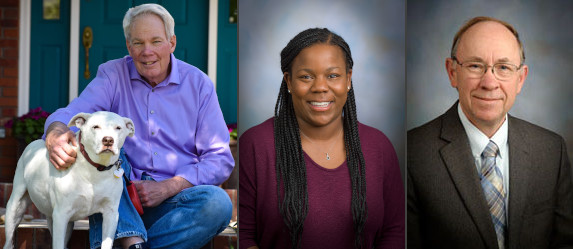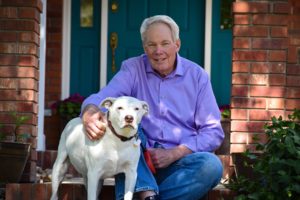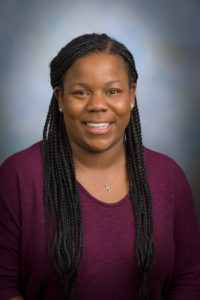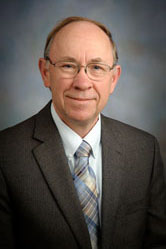
Three members of Colorado State University’s Department of Atmospheric Science will be honored at the 102nd American Meteorological Society Annual Meeting Jan. 23-27 in Houston. Professor Steven Rutledge will receive the Verner E. Suomi Technology Medal, and Melissa Burt, Walter Scott, Jr. College of Engineering assistant dean for diversity and inclusion, will receive the Charles E. Anderson Award. The meeting also will feature a symposium named for Professor Emeritus Richard Johnson.
“We continue to be grateful to the American Meteorological Society for recognizing the excellence in the Colorado State University Atmospheric Science department,” said David McLean, dean of the Walter Scott, Jr. College of Engineering. “Our researchers and emeritus faculty have set the standard for addressing pressing issues related to climate change and understanding of the atmosphere.”
Sharing the Suomi Medal

Rutledge was selected for the Verner E. Suomi Technology Medal based on his “exceptional contributions to the development, innovation, and application of radar meteorology and atmospheric electricity technologies,” according to the AMS citation. The late Verner Suomi is considered the father of satellite meteorology, and the medal named for him acknowledges significant technological achievement.
Rutledge leads the Radar Meteorology Group at CSU, which operates the CSU-CHILL National Radar Facility and led the development of SEA-POL, the world’s most advanced shipborne weather radar. Rutledge has studied cloud properties using Doppler, spaceborne, and polarimetric radar technology. He has been principal investigator on many field campaigns around the world, including most recently PISTON, the Propagation of Intra-Seasonal Tropical OscillatioNs in the tropical west Pacific.
“I have been very fortunate to work at CSU all these years,” Rutledge said. “My research was always supported by the university, college and department.”
Rutledge joined the Department of Atmospheric Science in 1988 and served as department head from July 1999 through December 2006.
“I had the opportunity to learn from and work with outstanding faculty in our department and in the Department of Electrical and Computer Engineering,” he said. “The award also reflects the many outstanding graduate students and staff I have had the honor to work with over the years. Each of them own a piece of the Suomi Medal.”
A major agent of change

Burt was recognized for outstanding contributions to the promotion of diversity in the atmospheric or related sciences and broader communities through education and community service. Charles Anderson was the first African American to receive a Ph.D. in meteorology.
“To follow in his footsteps is quite an honor,” Burt said.
Burt serves in numerous leadership positions with national professional organizations in the Earth Sciences, fields with the lowest diversity across all STEM fields. She leads initiatives to empower young scientists and facilitates difficult discussions on equity. In the Department of Atmospheric Science, Burt leads the NSF Research Experiences for Undergraduates program.
In the last year, Burt co-founded Science Moms, a national campaign to educate mothers about climate change, and became an IAspire Leadership Academy Fellow. Burt also received the President’s Council on Culture Award this spring for notable contributions to the culture of CSU. She stood out as a major agent of change, said Sue James, Vice Provost for Faculty Affairs and President’s Council on Culture chair.
“Diversity, equity, and inclusion work is challenging and slow and at times it’s hard to see that what you are doing is leading to change,” Burt said. “I am thankful to those who helped in putting together my nomination package. This recognition really means so much to me.”
Distinguished career

The Richard H. Johnson Symposium will celebrate Professor Emeritus Johnson for his distinguished career as a researcher and educator. Johnson’s career has led to important discoveries on tropical and midlatitude convection, and his contributions to many international field campaigns set a new standard for collecting and analyzing unique observations.
The symposium originally was scheduled for 2021 but was postponed due to the global pandemic. Only two or three named symposia are included in each year’s program, reserving this recognition for the most outstanding individuals who have significant achievements in their field.
“I am truly humbled by all of this, and appreciative of so many students, faculty, and other colleagues and staff I’ve worked with over many years,” Johnson said.
Johnson was a leader in the department’s mesoscale meteorology program from the time he joined the faculty in 1980 through his retirement in 2015. He served as department head from 2007-11. Johnson continues to be active in research from his home in Oregon with interests in tropical convection, dynamics of the Madden-Julian Oscillation, and monsoon processes.
AMS previously recognized Johnson with the Suomi Medal in 2013. The Johnson Symposium succeeds the 2020 AMS Schubert Symposium honoring Professor Emeritus Wayne Schubert.